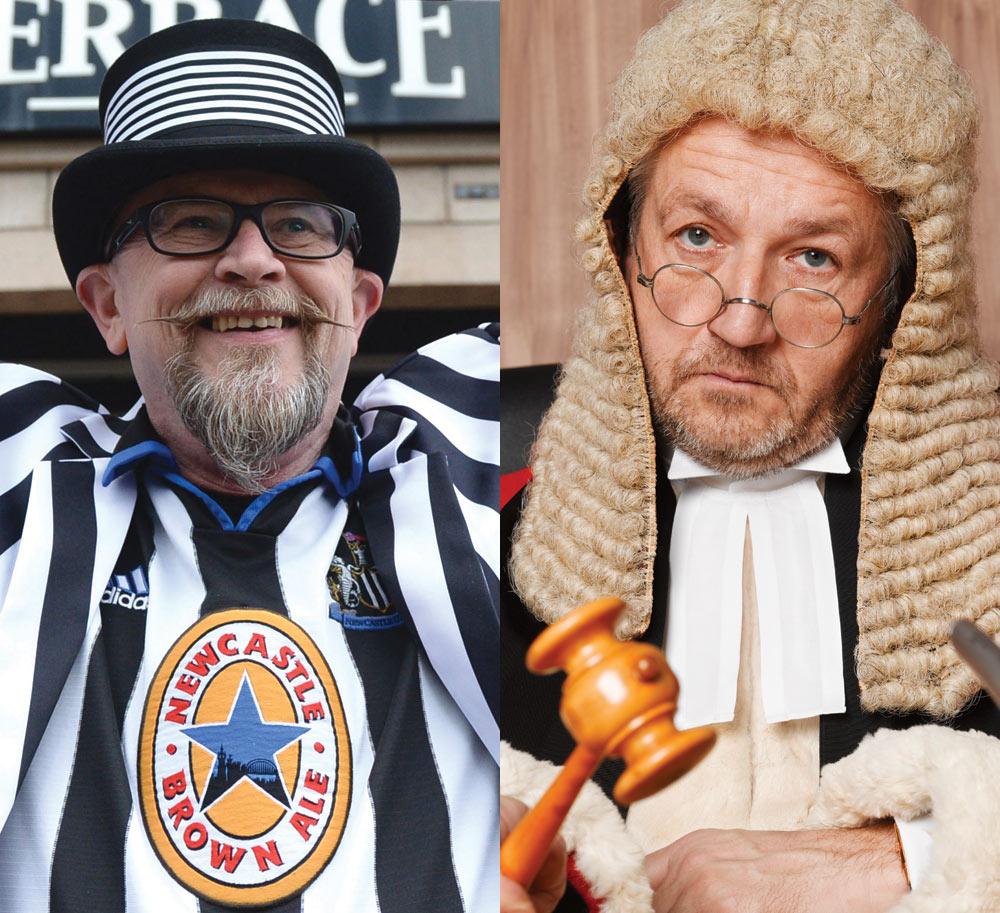Polls this year didn’t just tell us about our attitudes to Brexit, they revealed a lot about the kind of people we are

He’s probably pretty happy... but he certainly isn’t
Are we a God-fearing nation?
Not any more. 21% of those aged between 11 and 18 may describe themselves as active followers of Jesus, and 13% of them attend church (ComRes/Sunday Telegraph). But overall, only 47% of us say we are religious – a record low: in 1983, when the British Social Attitudes survey first asked the question, 69% did (YouGov/Sunday Times). The over-75s are an exception: 73% of them say they’re religious. By contrast, a mere 29% of 18- to 24-year-olds claim to be (YouGov/Independent). And even among people who profess to be Christians, 23% said they do not believe in Christ’s resurrection, 29% said they never pray and 55% said they never read the Bible (ComRes/BBC).
Do we do much reading of any sort?
Not a lot. It’s true that 25 million books have gone missing from Britain’s public libraries in the past 20 years (The Guardian), but it’s not clear how many actually got read. When 2,000 people were asked by the Royal Society of Literature to name an author, 20% said they couldn’t think of one and 25% said they hadn’t read a book in the past six months. In fact, one in ten of us – one in five 18- to 24-year- olds – don’t own a single book (Aviva/Sunday Times). By contrast, the average household contains 8.2 devices linked to the internet – 10.9 if the household has children. By the time they leave primary school, more than 40% of children have their own mobile phone (The Times).
Do we enjoy our online obsession?
It doesn’t appear so. 63% of secondary school pupils say they wouldn’t mind if social media didn’t exist; 56% describe themselves as being on the edge of addiction to it; 71% say they’ve been on temporary “digital detoxes” to try to get over it (Digital Awareness UK/Guardian). It doesn’t stand you in good stead with your boss either: 19% of employers say they’ve rejected a candidate for a job on account of their online activity (YouGov). Almost 48% of girls aged between 11 and 18 say that they’ve been bullied or abused on social media (The Guardian). 21% of women in the UK aged 18 to 55 say they’ve experienced abuse or harassment online (Ipsos Mori).
Are men behaving badly offline, too?
A lot of them seem to be. 24% of British women say they’ve experienced sexual harassment in public places in the last five years. That rises to 31% among 25- to 49-year-olds and 52% for 18- to 24-year-olds (YouGov). On the other hand, what is regarded as abuse also varies by age. Nearly two-thirds (64%) of women aged 18 to 24 see wolf whistling as a form of harassment and more than a quarter (28%) think a man commenting on attractiveness falls into the same category. But only 15% of women aged 55 or over agree about the whistling and 11% about the comments on attractiveness (YouGov). It’s also the case, however, that British men are feeling less secure about their gender identity. 56% of those over 65 consider themselves completely masculine, but that falls to 32% for men aged 50 to 64, and to a remarkable 2% among 18- to 24-year-olds (YouGov/Guardian).
Are we more sexually active?
Probably not; at any rate, many of us don’t feel the need to be. 75% of single women and 65% of single men say they haven’t tried to find a partner in the past year (Mintel). But unlike Americans, we don’t set many restraints on social intercourse between the sexes. 60% of American women and 48% of American men think it inappropriate for a married person to have a drink with a member of the opposite sex who isn’t their spouse (Morning Consult/New York Times). By contrast, just 12% of British women and 10% of British men feel that way (YouGov/Times). The Brits are also more relaxed about pre-marital sex, even those who identify as Catholics. 76% of the latter now say there’s nothing wrong with it; only 38% did in 1985 (British Social Attitudes Survey). However, as ever it’s the French – more specifically Parisians – who are most carefree about sexual encounters. 44% of Parisians say they’ve had sex with someone without knowing their name and 22% have taken part in an orgy (Ifop).
Are we by and large a happy crew?
We certainly don’t think life is fair. Just 25% of us feel it is, compared with 38% of Americans (YouGov). On the other hand, you may well be happy if you come from Newcastle, the country’s happiest town. Fully 72% of Geordies admit to smiling regularly and feeling “a warm glow”. At the other end of the scale is Birmingham – only 40% of Brummies say they feel happy (GalaBingo.com). But most of us do seem to be pretty happy at work: 68% of women and 58% of men either love or at least like their jobs (YouGov). Not, however, if they happen to be judges, who plead guilty to being thoroughly miserable: 74% of them think they’re underpaid, 42% would quit their job if they felt they had a viable alternative, and only 2% feel valued by the Government (JAS).
Statistics of the year
Of the 8,096 people registered homeless in London in 2015-16, only 3,271 were British. Nearly 3,000 were from central or eastern Europe, and 1,546 were Romanian.
Daily Mail
There are 59 theatres at London’s private schools; there are 42 in the West End.
The Sunday Times
The proportion of women aged 18 who started university this autumn in the UK (37.1%) was more than a third greater than that of men (27.3%).
The Guardian
About 45% of children in Britain today have no siblings.
The Times
Last year, 15.8% of British adults smoked, down from 17.2% in 2015 – the second lowest rate in Europe, behind Sweden.
The Guardian
Young black youths are nine times as likely as young white males to be jailed in England and Wales.
The Times
Nearly half of all ready meals eaten in Europe last year were consumed in the UK. On average, people in this country consume at least one ready meal a week – twice as many as the French and six times the number consumed by the Spanish.
Daily Mail
There are 88 self-made female billionaires in the world, and 56 of them are in China.
Quartz
The proportion of people aged 65 and over who are in work has almost doubled since 1992, from 5.5% (478,000 people) to 10.4% (1.19 million) in 2016.
The Daily Telegraph
More than one in three physics teachers do not have a degree in physics.
The Independent


